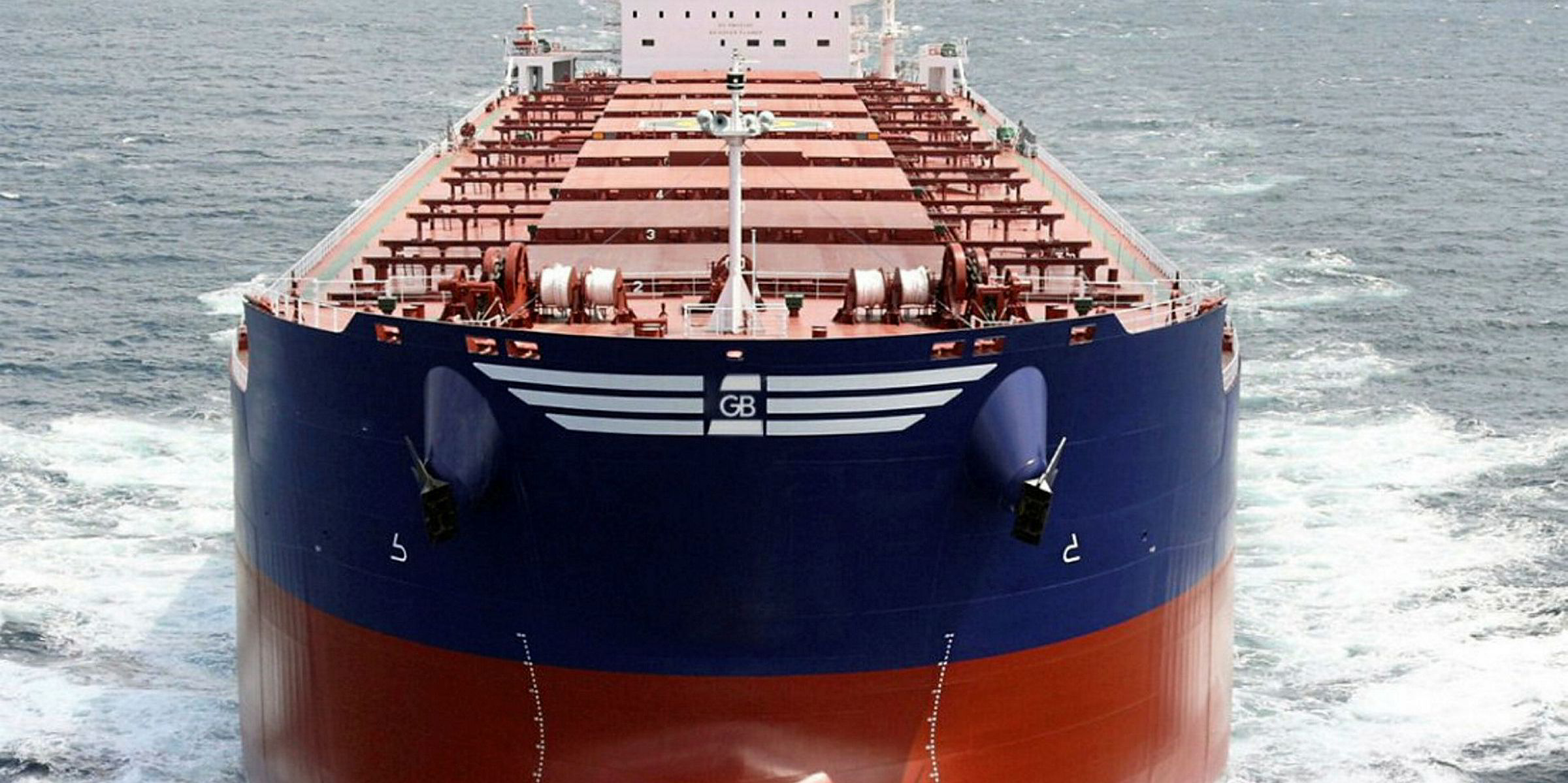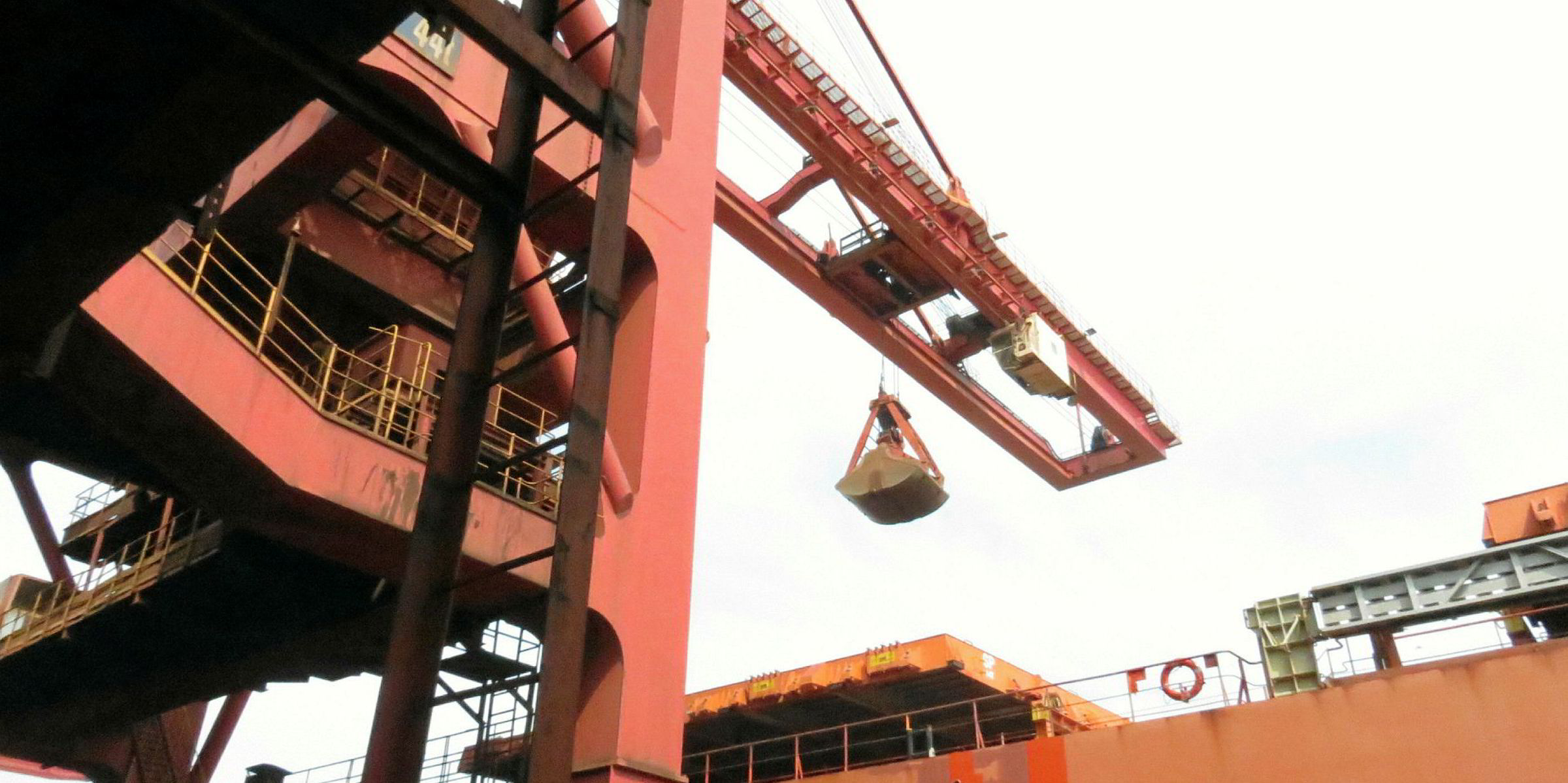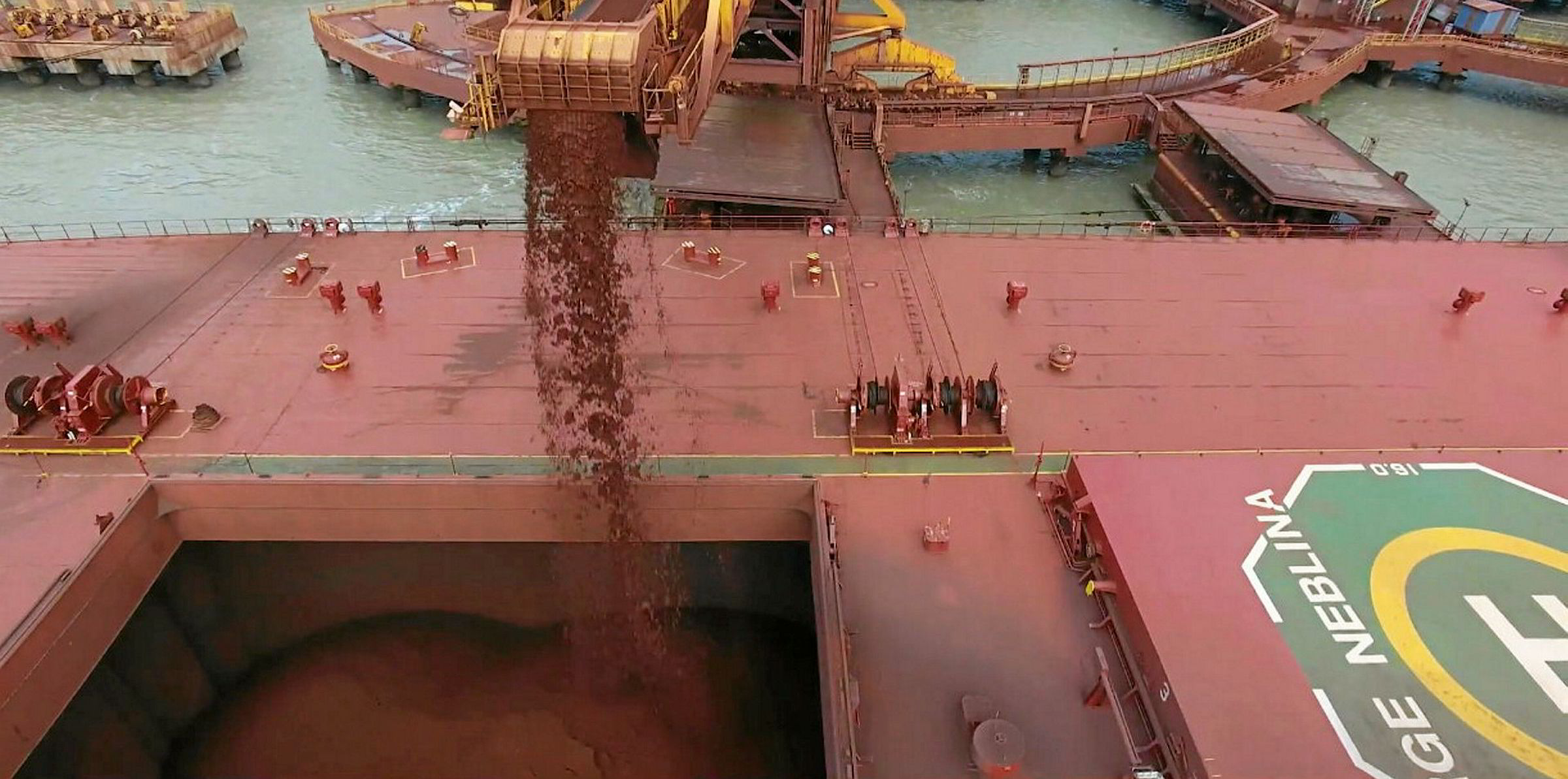Dry bulk shipping rates have slid for a second consecutive day as China looks to Australia for a lower-quality iron ore amid supply disruptions in the Americas and South Africa.
The Baltic Exchange Dry Index on Wednesday declined 34 points to 694, after falling 29 points on Tuesday.
Capesize rates on a timecharter equivalent (TCE) basis have also slid over the past two days, falling $525 to $9,556 per day on Tuesday and $36 to $968 per day on Wednesday.
"A shift to lower-grade Australian iron ore has negatively impacted tonne-mile demand," Clarksons Platou Securities Frode Morkedal wrote in a client note.
China's infrastructure asset investment is a "key driver of steel demand" as contractors wait for the government to provide more information on the nation's stimulus programme.
"These are all good indicators for improved dry bulk demand in the months and quarters ahead, in our view," he wrote.
Rates for the benchmark Brazil-China and Australia-China routes have still fallen over the past two days, according to the Baltic Exchange.
The Brazil-China leg is attracting $9,859 per day, down from $11,123 per day on Monday. Capes moving ore on the much shorter Australia-China transit are seeing $4.323 per tonne-mile, down from $4.986 on Monday.
The rest of the dry bulk sector saw second-day declines as well.
Panamax rates declined $397 to $7,005 per day on a time-charter-equivalent basis, and by 44 points to 778 on the Baltic Panamax Index, according to Baltic Exchange data.
Supramaxes dropped $126 to $4,225 per day on a , and by 14 clicks to 384 points on the sector index come Wednesday.
Handysizes fell $199 to $4,648 per day, with the handysize index slipping by 11 points over the past two days to 258.






